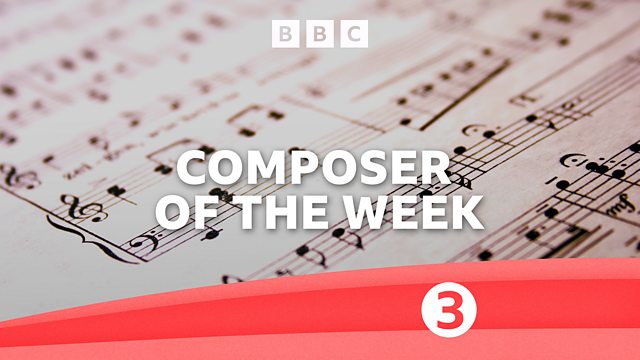
Mario鈥檚 gambit
Donald Macleod explores Morricone鈥檚 early years as a chess fanatic and trumpeter, and discovers how a trip he made to Darmstadt proved a particularly formative experience.
Donald Macleod explores Morricone鈥檚 early years as a chess fanatic and trumpeter, and discovers how a trip he made to Darmstadt proved a particularly formative experience.
Ennio Morricone is cited as one of the most experimental and influential composers of all time, undoubtedly recognised as one of the world鈥檚 greatest ever composers of music for film. A legendary figure who over the course of his career won numerous awards, and accolades, his innovative sound worlds helped to define what film music could be for multiple genres of cinema. Morricone鈥檚 music extended far beyond the desert landscapes of spaghetti westerns, not just to other genres on the silver screen, but also into the worlds of pop music, and into the concert hall 鈥� where his study and composition of avant-garde music gave him the techniques to experiment within his scores for film as well. Over the course of this week, following on the heels of the 2024 Academy Awards, Donald Macleod explores the incredible career of Ennio Morricone, a composer who quite astoundingly wrote over 500 scores for film and television, as well as over 100 classical works.
In Monday鈥檚 episode, Donald explores Morricone鈥檚 early years as a chess fanatic and discovers how it was a gift from Ennio鈥檚 father, Mario 鈥� a freelance trumpet player 鈥� which pushed the young Morricone into the world of music. We鈥檒l hear about Morricone鈥檚 studies, and how his phenomenal but secret success as an arranger for Italian radio and RCA Italiana led him into the burgeoning Italian film industry. Donald also explores a formative trip the young Morricone made to the Summer School at Darmstadt, where the experimental musicians included John Cage, and examines the influence that that experience had on Morricone鈥檚 music.
Invenzione
Roberto Prosseda, piano
The Ecstasy of Gold from The Good, The Bad and The Ugly
Studio orchestra
Party Prohibito from I malamondo
Studio orchestra
Musica per undici violini
Archi di Santa Cecilia
Luigi Piovano, conductor
Eduardo di Capua and Alfredo Mazzucchi
O sole mio (arr. Morricone)
Miranda Martino, singer
Edoardo Nicolardi and Ernesto de Curtis
Voce e鈥檔otte (arr. Morricone)
Mario Lanza, singer
Franco Ferrara and his orchestra
Ennio Morricone
Concerto for Orchestra
Ennio Morricone, conductor
Scambio di prigionieri from A Fistful of Dollars
Studio orchestra
Ennio Morricone, conductor
Produced by Sam Phillips for 成人快手 Audio Wales & West
Last on
More episodes
Previous
You are at the first episode
Music Played
-
![]()
Ennio Morricone
Invenzione
Performer: Roberto Prosseda.- DECCA.
-
![]()
Ennio Morricone
The Ecstasy of Gold from The Good, The Bad and The Ugly
Performer: Alessandro Alessandroni. Orchestra: Unione Musicisti di Roma. Choir: I cantori moderni di Alessandroni. Singer: Edda Dell鈥橭rso. Singer: Franco Cosacchi. Singer: Nino Dei. Singer: Enzo Gioieni. Singer: Gianna Spagnulo. Conductor: Bruno Nicolai.- EMI.
-
![]()
Ennio Morricone
Party Prohibito from I Malamondo
Choir: I cantori moderni di Alessandroni. Orchestra: Studio Orchestra.- DECCA.
-
![]()
Ennio Morricone
Musica per undici violini
Ensemble: Archi di Santa Cecilia.- ARCANA.
-
![]()
Eduardo Di Capua
O Sole Mio
Composer: Alfredo Mazzucchi. Music Arranger: Ennio Morricone. Singer: Miranda Martino. Orchestra: Studio Orchestra.- RCA ITALIANA.
-
![]()
Eduardo Nicolardi
Voce e'notte
Composer: Ernesto De Curtis. Music Arranger: Ennio Morricone. Singer: Mario Lanza. Orchestra: Franco Ferrara & His Orchestra.- LIVING STEREO.
-
![]()
Ennio Morricone
Concerto for Orchestra
Orchestra: Uncredited Performers.- ARMONIA.
-
![]()
Ennio Morricone
Scambio di prigionieri from A Fistful of Dollars
Orchestra: Solisti e orchestre del cinema italiano. Conductor: Ennio Morricone.- RCA.
Broadcast
- Mon 11 Mar 2024 12:00成人快手 Radio 3
Beethoven Unleashed 鈥� the box set
What was really wrong with Beethoven?
Composers A to Z
Who knew? Five eye-opening stories from Composer of the Week
Five reasons why we love Parry's Jerusalem
What is the strange power of Jerusalem which makes strong men weep?
A man out of time 鈥� why Parry's music and ideas were at odds with his image...
The composer of Jerusalem was very far from the conservative figure his image suggests.
Composer Help Page
Find resources and contacts for composers from within the classical music industry.





